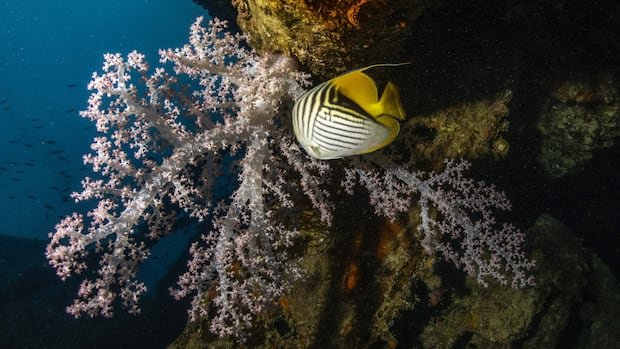A recent study challenges the common belief that fish do not seek pleasure by suggesting that some fish actively pursue enjoyable experiences and may even have cravings for them. Marta Soares, a behavioral physiologist at the University of Porto in Portugal, highlighted a shift in perception from viewing fish as inferior vertebrates to recognizing their potential for experiencing positive emotions.
The study, published in Proceedings of the Royal Society B, focused on exploring whether fish can experience pleasure similar to other vertebrates like cats and dogs. Soares and her team investigated mutualistic interactions between species in coral reefs, particularly the relationship between bluestreak cleaner wrasse and threadfin butterflyfish, where the cleaner wrasse feeds on parasites from the butterflyfish’s skin in exchange for grooming.
By conducting experiments in controlled settings, researchers observed that butterflyfish exhibited a preference for areas where they had previously interacted with cleaner wrasse, indicating a positive association akin to a happy memory. The study also delved into the fish’s opioid system, which regulates pain and pleasure, and found that administering an opioid mimic increased the fish’s attraction to cleaning areas, while blocking opioid receptors diminished their interest.
Furthermore, the research explored whether fish not only liked but also actively sought out the cleaning experience. The findings indicated that fish were willing to navigate obstacles to access cleaners, regardless of whether they received the pleasure-inducing drug or the blocker, suggesting a strong desire for the interaction.
While some scientists remain cautious about interpreting these findings as conclusive evidence of fish experiencing pleasure, the study underscores the importance of understanding and acknowledging the emotional capacities of aquatic animals. The implications of this research extend to how fish are perceived and treated in aquaculture and aquarium settings, emphasizing the need for a more nuanced perspective on fish behavior and well-being.


